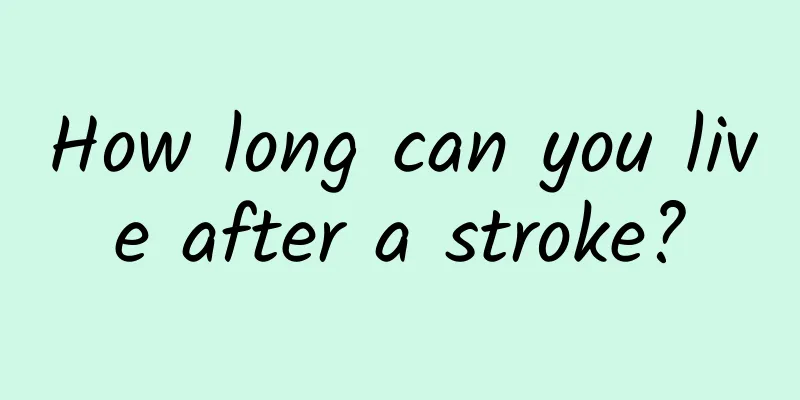What are the symptoms of depression? Five major symptoms of depression

|
As people's work pressure continues to increase, the incidence of depression is also increasing. Depression is a mental illness. Once a patient is diagnosed with the disease, he or she needs careful counseling and psychological treatment. Depression has five main manifestations: low mood, slow thinking, decreased willpower, cognitive impairment, and physical symptoms. If you find these symptoms, you need to be alert! 1. Depressed mood The main manifestations are significant and persistent low mood, depression and pessimism. In mild cases, people feel unhappy, have no sense of pleasure, and have a loss of interest. In severe cases, people feel extremely distressed, pessimistic and hopeless, and feel that each day is like a year worse than death. The depressed mood of typical patients has a rhythmic change from heavier in the morning to lighter at night. On the basis of depressed mood, patients will have lowered self-evaluation, and develop feelings of uselessness, hopelessness, helplessness and worthlessness, often accompanied by self-blame and guilt. In severe cases, they will have delusions of guilt and hypochondria, and some patients may experience hallucinations. 2. Slow thinking The patient's thinking and association are slow, his reaction is unsuccessful, his train of thought is blocked, and he feels that his "brain is like a rusty machine" and "his brain is like covered with a layer of paste." Clinically, active speech decreases, speech speed slows down significantly, voice becomes deep, and conversation becomes difficult. In severe cases, communication cannot proceed smoothly. 3. Decreased willpower The patient's volitional activity was significantly and persistently inhibited. The clinical manifestations are slow behavior, passive and lazy life, unwillingness to do things, unwillingness to contact and interact with people around, often sitting alone, or lying in bed all day, living alone with the door closed, alienating relatives and friends, and avoiding socializing. In severe cases, they even ignore physiological needs such as eating and drinking, as well as personal hygiene, and become unkempt and unkempt, and may even become speechless, motionless, and refusing to eat. This is called "depressive stupor," but upon careful psychiatric examination, the patient still reveals signs of pain and depression. Patients with anxiety may have symptoms such as restlessness, finger grasping, rubbing hands and feet, or pacing up and down. Severe patients often have negative suicidal ideas or behaviors. Negative and pessimistic thinking, self-blame and lack of self-confidence can give rise to thoughts of despair, such as thinking that "ending one's own life is a kind of relief" and "being a superfluous person in the world", and can cause suicide attempts to develop into suicide behaviors. This is the most dangerous symptom of depression and should be viewed with caution. 4. Impairment of cognitive function Studies have shown that patients with depression have impaired cognitive function. The main manifestations are decreased recent memory, attention disorder, prolonged reaction time, increased alertness, poor abstract thinking ability, learning difficulties, poor language fluency, decreased spatial perception, eye-hand coordination and thinking flexibility. Cognitive impairment leads to social dysfunction in patients and affects their long-term prognosis. 5. Physical symptoms The main symptoms include sleep disorders, fatigue, loss of appetite, weight loss, constipation, pain in any part of the body, loss of libido, impotence, amenorrhea, etc. Complaints of physical discomfort may involve various organs, such as nausea, vomiting, palpitations, chest tightness, sweating, etc. Symptoms of autonomic dysfunction are also common. Complaints of preexisting medical illness usually worsen. The main manifestation of sleep disorders is early awakening, generally 2 to 3 hours earlier than usual, and inability to fall asleep again after waking up, which is characteristic of depressive episodes. Some patients have difficulty falling asleep and shallow sleep; a few patients have excessive sleep. Weight loss is not necessarily proportional to loss of appetite. A small number of patients may experience increased appetite and weight gain. |
>>: What diseases cause migratory pain?
Recommend
What to do if your teeth are rotten
Tooth root rot is quite common in our daily life....
What is the best medicine for sinusitis?
Sinusitis is a common and frequent disease in dai...
What to do about premenstrual migraine
For women, there are some things they need to pay...
Redness on both sides of the nose
When it comes to diseases, many people are famili...
Fermented rice wine and eggs for breast enhancement - Can fermented rice wine and eggs really enhance breast size?
The fermented rice egg has been said to be an alm...
What are the symptoms of kidney deficiency in teenagers?
Kidney deficiency is not only a symptom of adults...
Can acupuncture remove melasma?
Chloasma is generally the most common skin diseas...
The practice and efficacy of red dates, brown sugar and ginger water
Red dates, brown sugar and ginger water, just by ...
The role of traditional Chinese medicine Sterculia lychnophora
Many people who suffer from sore throats or phary...
Why do babies have eczema on their faces?
When a baby is born, its skin is very delicate an...
Can I get vaccinated if I have mild diarrhea?
Babies need to be vaccinated many times after the...
Why do people with hypothyroidism suffer from fear of cold and memory loss?
Memory loss, fear of cold, fatigue, and lack of e...
Difference Between Bacteria and Fungi
Although bacteria and fungi have very similar nam...
Will wolfberry cause internal heat? So this is the truth? Did you know?
People on the Internet often advise people to eat...
TCM treatment of Parkinson's disease
To be specific, Parkinson's disease is actual...









